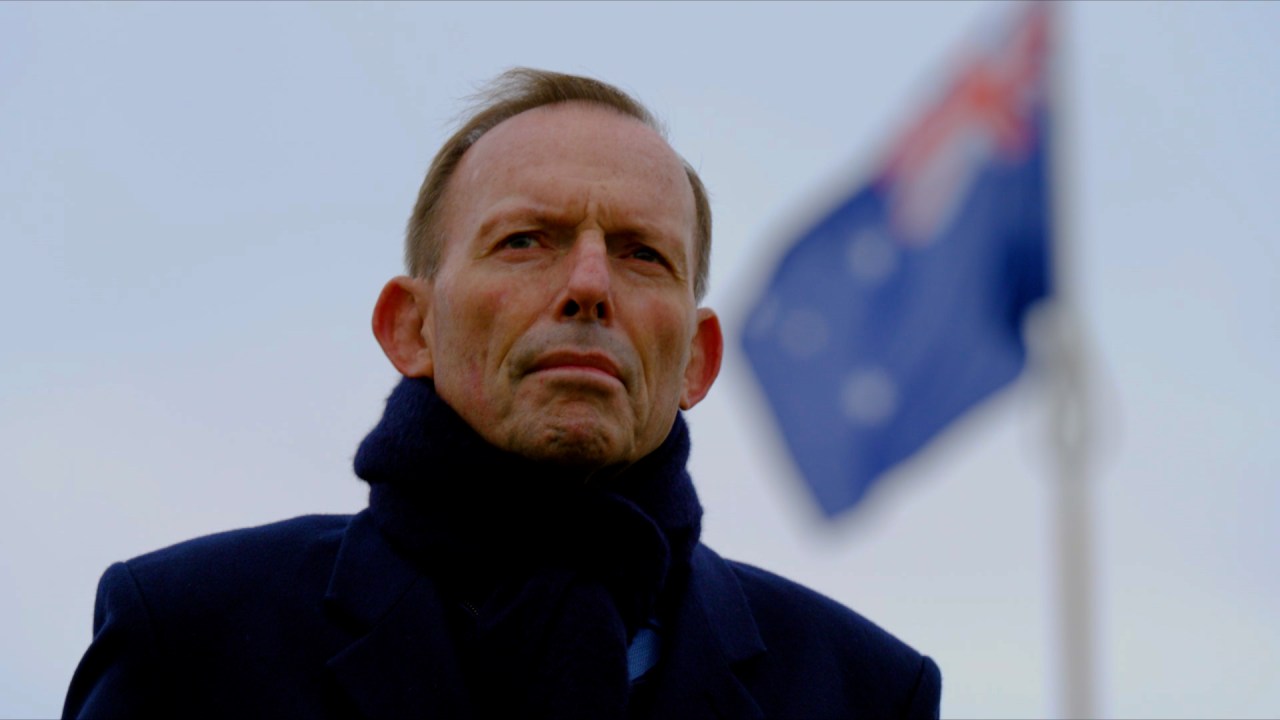For those arriving from the stratified societies of Britain and Europe, the gold diggings were extraordinary.
A “boisterous egalitarianism” was tearing down social barriers as the diggers “enjoy[ed] a new liberty, of which they never dreamed before”.
One visiting British aristocrat, Lord Robert Cecil – the future Lord Salisbury and British prime minister – attracted taunts for his white top hat.
He was dismayed by the diggers’ vulgarity but surprised by the relative lawfulness of the goldfields, estimating that “there is not half as much crime or insubordination as there would be in an English town of the same wealth and population”.
Watch former prime minister Tony Abbott’s documentary series ‘Australia: A History’ here.
On some goldfields, miners developed their own informal rules in the absence of a well-established police presence.
Often enough, a measure of civil society – and the free associations that sustain it – emerged spontaneously among a population imbued with a pre-existing sense of what was right and proper.
There were places where all work stopped on Sundays for the diggers to attend religious services.
In Ballarat, a theatre was opened, a horse racing club was formed and cricket was played in the warmer months. Still, the diggings were rough places. At Fryer’s Creek, just south of Castlemaine, it was recorded that “quarrels, dissensions, bloodshed and danger of the direst description reign supreme”.
Summary justice could be meted out, sometimes brutally. Crime was checked “by an occasional pistol-shot”; word was passed from tent to tent relaying the consequences of a bad decision.
Authorities in Melbourne feared that “lynch law” would rule the fields, as vigilante justice had become known during the California gold rush; only one instance of a lynching is recorded in Victoria, however.
The Chinese started to arrive in January 1853. Their numbers peaked at 40,000 in 1858 – equivalent to almost the entire population of the Port Phillip District in the late 1840s.
Initial reactions to their arrival were marked by curiosity and confusion over their habits and dress, but as the number of Chinese increased, indignation and prejudice grew.
Discrimination notwithstanding, there were noticeable differences from the Chinese experience on the Californian goldfields.
In Victoria, despite the chaotic flood of migration, the colonial government had a better grip than in California, which had only recently been seized from Mexico. Legal institutions were better established and more liberal.
A judge at Castlemaine declared: “All men here are equal; they come here from all parts of the world in equality, and you have no right to attempt to drive any away because they do not work as you please”.
In practice, language and cultural barriers hurt the Chinese newcomers, and European migrants were made more welcome. Still, unlike in California, Chinese migrants could give evidence in court.
Commercially, too, Chinese migrants generally found it easier to trade and also to achieve social mobility than in California. According to the historian Mae Ngai, Chinese capitalists “believed their status as British subjects entitled them to equal political and economic rights (even if these were not always forthcoming)”.
Lowe Kong Meng arrived in Victoria in 1853 and carried on a significant trading business as well as becoming a founding board member of the Commercial Bank of Australasia, which issued bilingual notes to assist Chinese customers. By contrast, “no American corporation welcomed Chinese capital”.
In 1856, when the Victorian government imposed a large tax on each Chinese newcomer, the Chinese ingeniously thwarted it by landing at Robe in South Australia and walking, in large parties, roughly 250 miles (400 km) to the Victorian goldfields.
This route was closed when South Australia passed similar anti-Chinese immigration restrictions a year later.
Using modern liberal arguments, in 1879, Lowe, together with Louis Ah Mouy and Cheok Hong Cheong, published a pamphlet titled “The Chinese Question”, rebutting the claim that Chinese migrants were innately different to the average European wage-earner.
It was an early instance of the universalism, and sense of a common humanity, that later came to characterise Australia.
This is an edited extract of ‘Australia: A History’ by Tony Abbott, published by HarperCollins Australia.
Watch former prime minister’s landmark new docuseries which charts the rise of Australia from ancient land to great democracy. ‘Australia: A History’ is available to watch online now at SkyNews.com.au.

